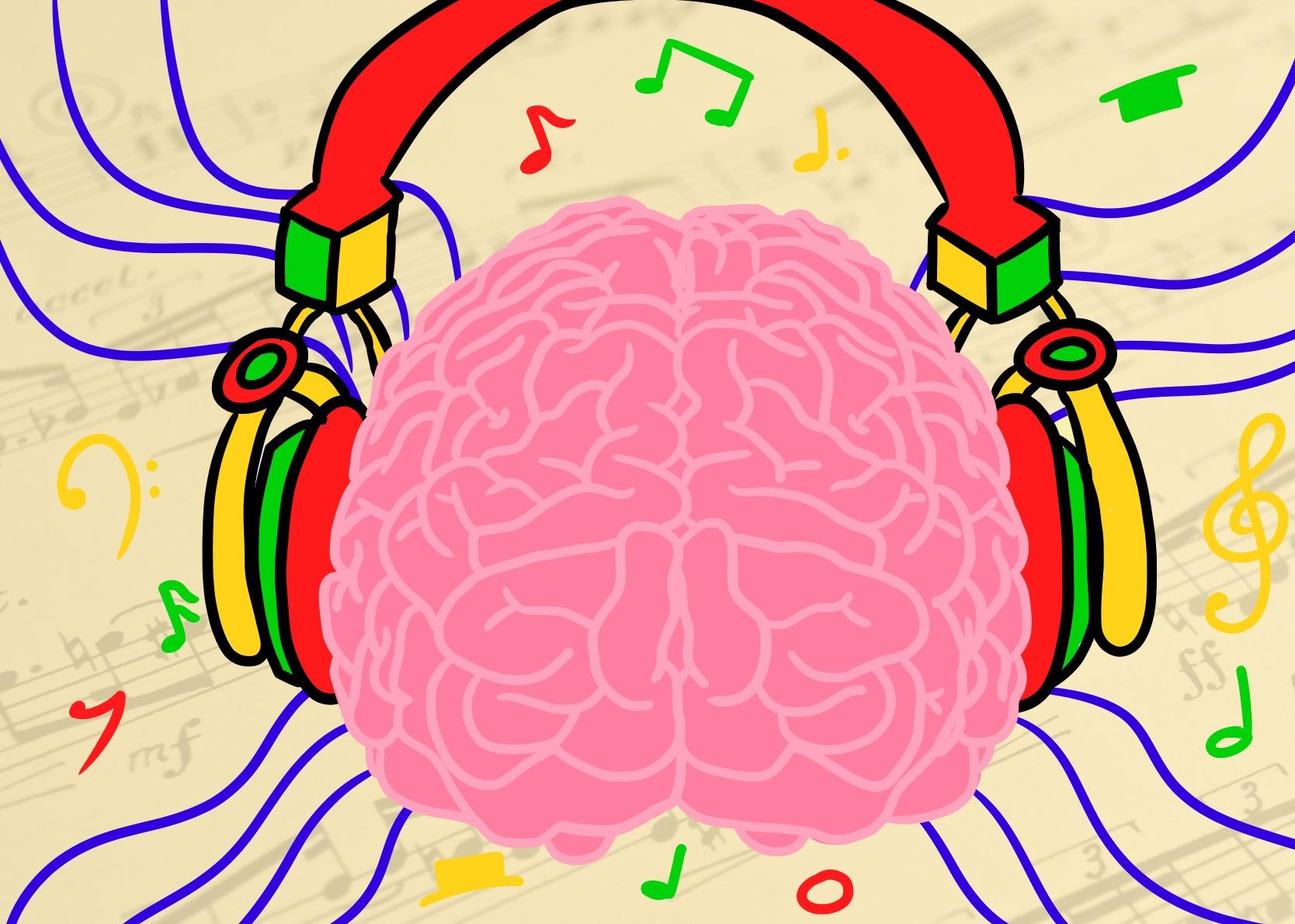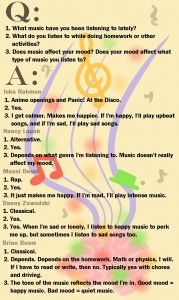What does your playlist say about you?

Graphic by Melania Toczko
You walk into the CHS library and try to find an empty table. As you pass by, you see students of all different grade levels with their earbuds in. You glance from table to table and hear Eminem playing from a petite freshman girl’s earbuds. Although surprised, you walk forward. You were never one to buy into stereotypes, but that was a little out of the ordinary. Going on, you see a junior wrestling champ listening to Taylor Swift. Perplexed, you wonder: what does our music say about us?
There are billions of people on the planet, with billions of different personalities, and just as many different music preferences. From heavy metal to classical, music is just as diverse as the people on this planet.
Psychology researchers Jason Rentfrow and Sam Gosling told psychology.com that people could make accurate judgments about an individual’s levels of extroversion, creativity, and open-mindedness after listening to ten of their favorite songs. Extroverts tend to seek out songs with heavy bass lines, while introverts are said to prefer more soft beats. Those who enjoy more complex styles such as jazz and classical music tend to be more creative and have higher IQ-scores.
Not only does music make us who we are, but it also affects how we feel. Science has shown that our brain is wired to feel elated when hearing certain beats, while other beats are undoubtedly tear jerkers. Happy beats are fast, with uplifting or pump-up lyrics, while sad beats are slower and calmer, with sober lyrics. Euphonious music triggers dopamine in the brain, which spreads happiness. Many Conant students use music to study or select music based on their mood
 Melania Toczko | Conant Crier
Melania Toczko | Conant Crier When asked about what music they prefer, Conant students offered a variety of responses, but all said yes when asked if they enjoy their tunes.
According to Cracked Magazine, a great way for your brain to cool off is to listen to music. This continual reward is what encourages you to listen to more upbeat music like “Uptown Funk (feat. Bruno Mars)” by Mark Ronson. However, downbeat music also “rewards” the brain. For instance, listening to sad and emotional music such as “Hello” by Adele, supports the opposite emotion and comforts the brain. Along with this, heavy metal produces the same brain reaction aggression does, yet subjects are calmer and happier afterward because dopamine is released when an individual enjoys music. Scientifically, there really is a song for every mood.
Finally, music also has the power to reduce stress. Overwhelmed with schoolwork? Have piles and piles of papers to grade? Nervous for the swim meet? Listening to the right tunes could relax your brain and even help you perform better. According to Psych Central, music can reduce tension and facilitate the relaxation response. It may be more compatible with relaxation than verbal stimuli, which may be distracting because music is processed mainly in nonverbal areas of the brain. So, listening to music without lyrics such as classical tunes or jazz actually relaxes the brain more by interacting with the nonverbal sector. A more relaxed brain has been proven to perform better because it is more calm, collected and worry-free.
Music affects us in more ways than we know. It reflects who we are, it caters to our emotions, and it even relieves our worry. Music is not just different beats and rhymes, it is a psychological mastermind. They say music is a gateway to the soul, but it is also a doorway to the brain.




Recent Comments